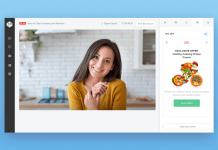
A popular speaker. A new business strategy. A raffle prize. Free cookies. It's easy to think of reasons a person should go to your event and, indeed, many organizers devote the majority of their time trying to figure out their biggest attraction.
While this is definitely an important use of time, it is just as important to think about why attendees may NOT attend your event.
When you have an idea of some of the obstacles and objection points that may make an attendee avoid your event, you can solve them before they become a problem.
To help get your brain juices flowing, here are a few of the most common reasons people DON'T attend an event:
1. No Strong CTA (Call To Action)
Don't assume your guests already know all of the attractions your event has to offer. Determine what those attractions are, make them clear to guests (through text, pictures, videos, etc.) and make a strong CTA for them to attend.
A common issue people run into here is determining what is and isnt an attraction worth mentioning. Too often organizers only promote & mention the features of their event that they think are important. To avoid this pitfall, try and think about your event from the attendee's perspective. Why should they go? What does your event offer that would compel them to buy a ticket?
Whether it's free food, learning a new skill, or a special appearance by Beyoncé, be sure to make it clear what your attendees will get from attending. Otherwise, from an attendee's perspective, they really have no reason to go.
2. Ticket Price
The number one reason we see people not attend an event is the price.
Discount and promo codes counter that by convincing the attendee they are getting a ticket to the event for less than it's true value. This “steal” of a deal makes the attendee feel smart and savvy, two emotions you want associated with you and your event.
On top of spurring conversion, deals like these are also word-of-mouth gold mines. When one attendee feels clever for getting a deal on a ticket, they want to tell a friend, first, to share in the deal with them and, two, to show them how clever they were for finding the deal in the place (don't act like you haven't done this).
3. Lacking Credibility
In the first 5-10 seconds of visiting your page, a guest will be able to determine whether or not they think your event is legit or not. Fair or not, this quick first impression can often be the difference between a show with standing room only and one with more than a few empty seats.
Your online content is a direct reflection of your event so the first step towards credibility is taking care of the easy stuff on the web. Typos, grainy images and other basic mistakes show carelessness and a lack of resources, two things you do not want people associating with your event.
A lack of descriptive information is another red flag for many attendees. Be sure to use the names of people and businesses involved with the event. It roots your event in reality and lends credibility.

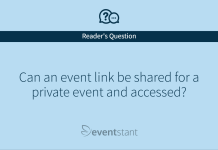
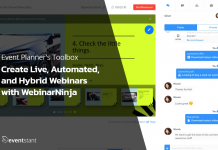
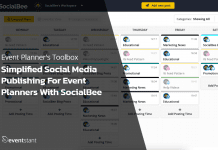
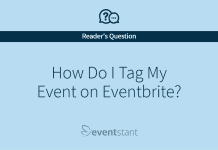
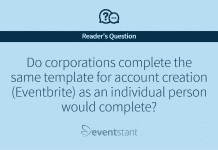



![How Important Are Face to Face Meetings [INFOGRAPHIC]](https://eventstant.com/wp-content/uploads/faceToface_v11-sm-218x150.jpg)


